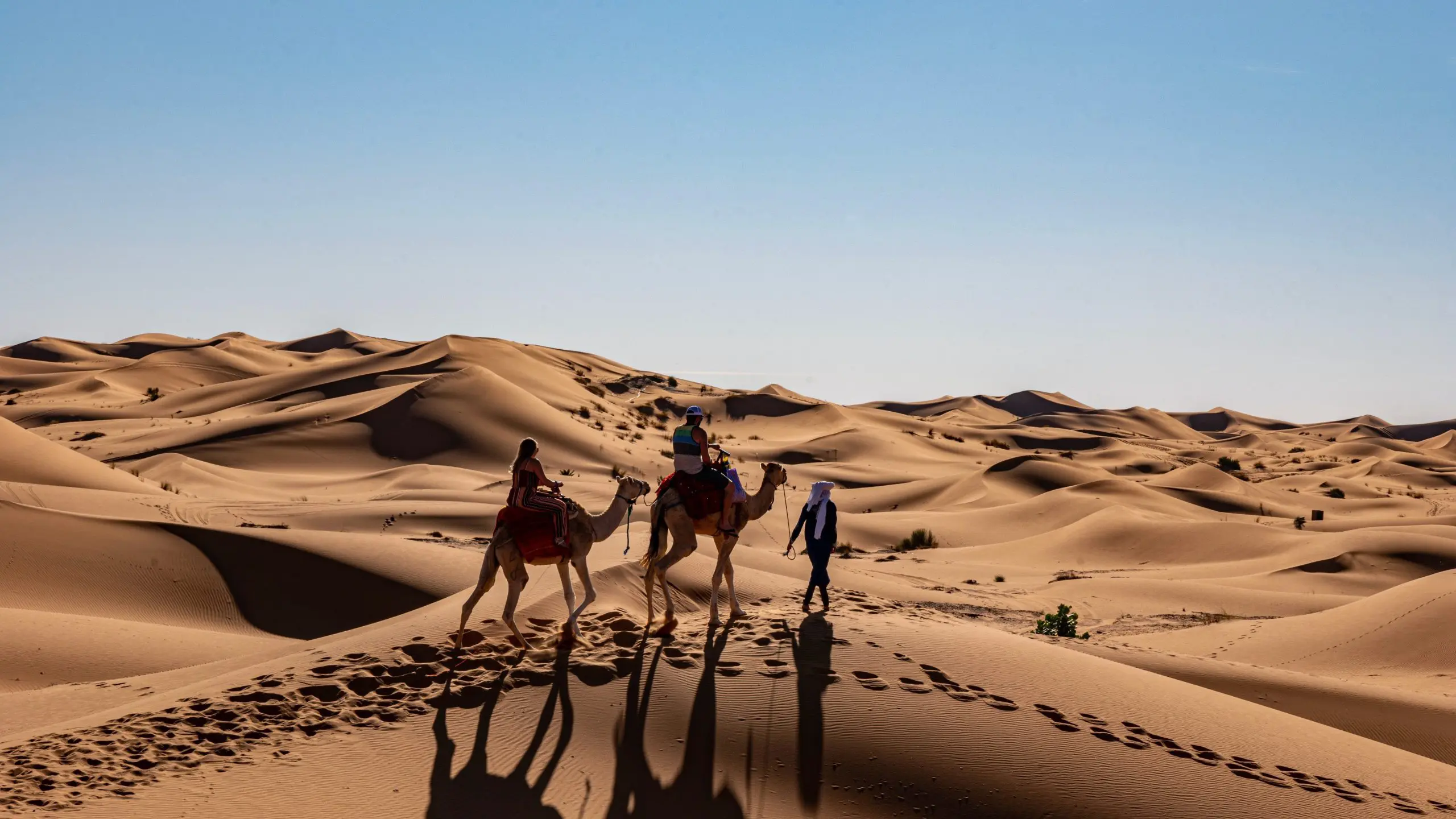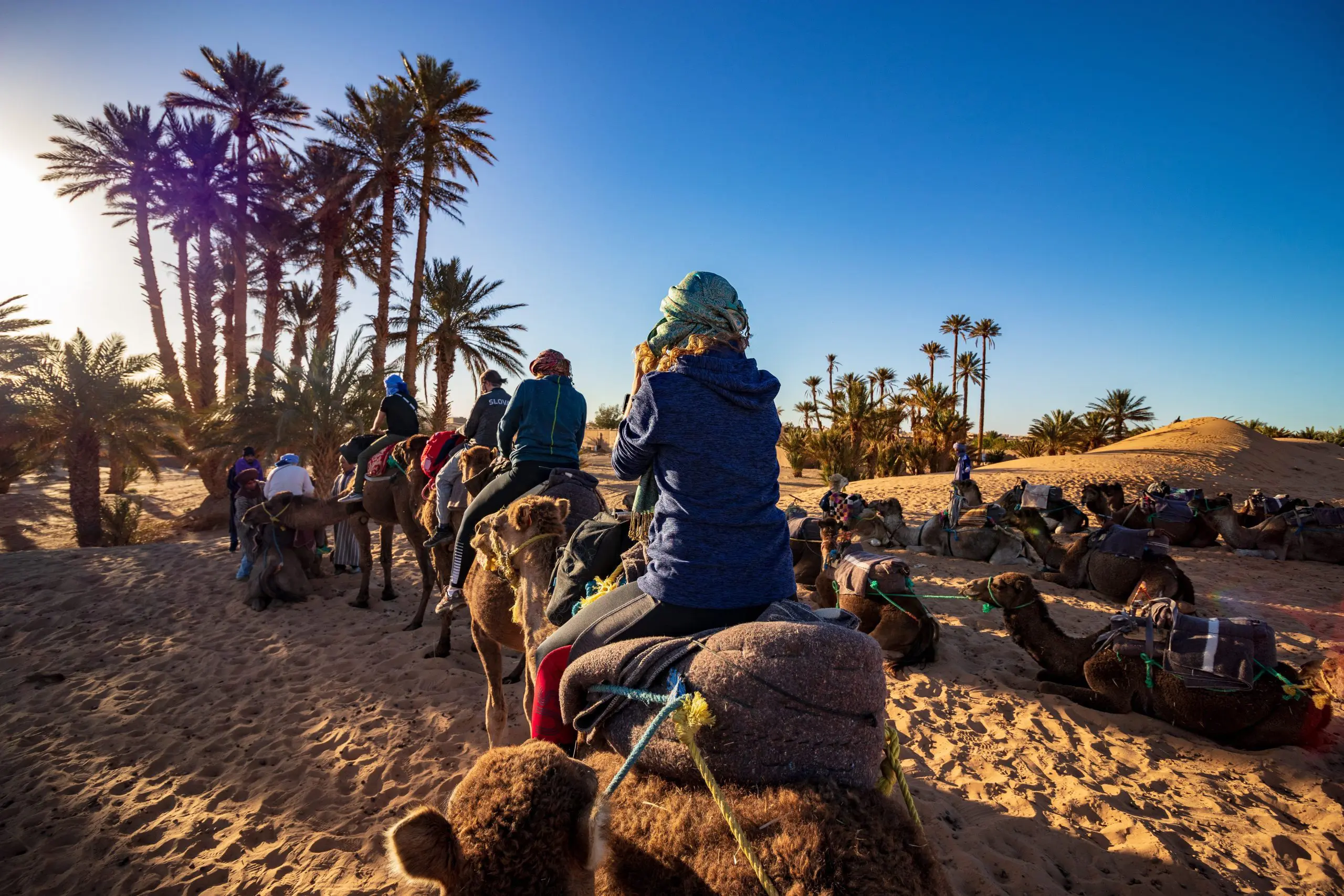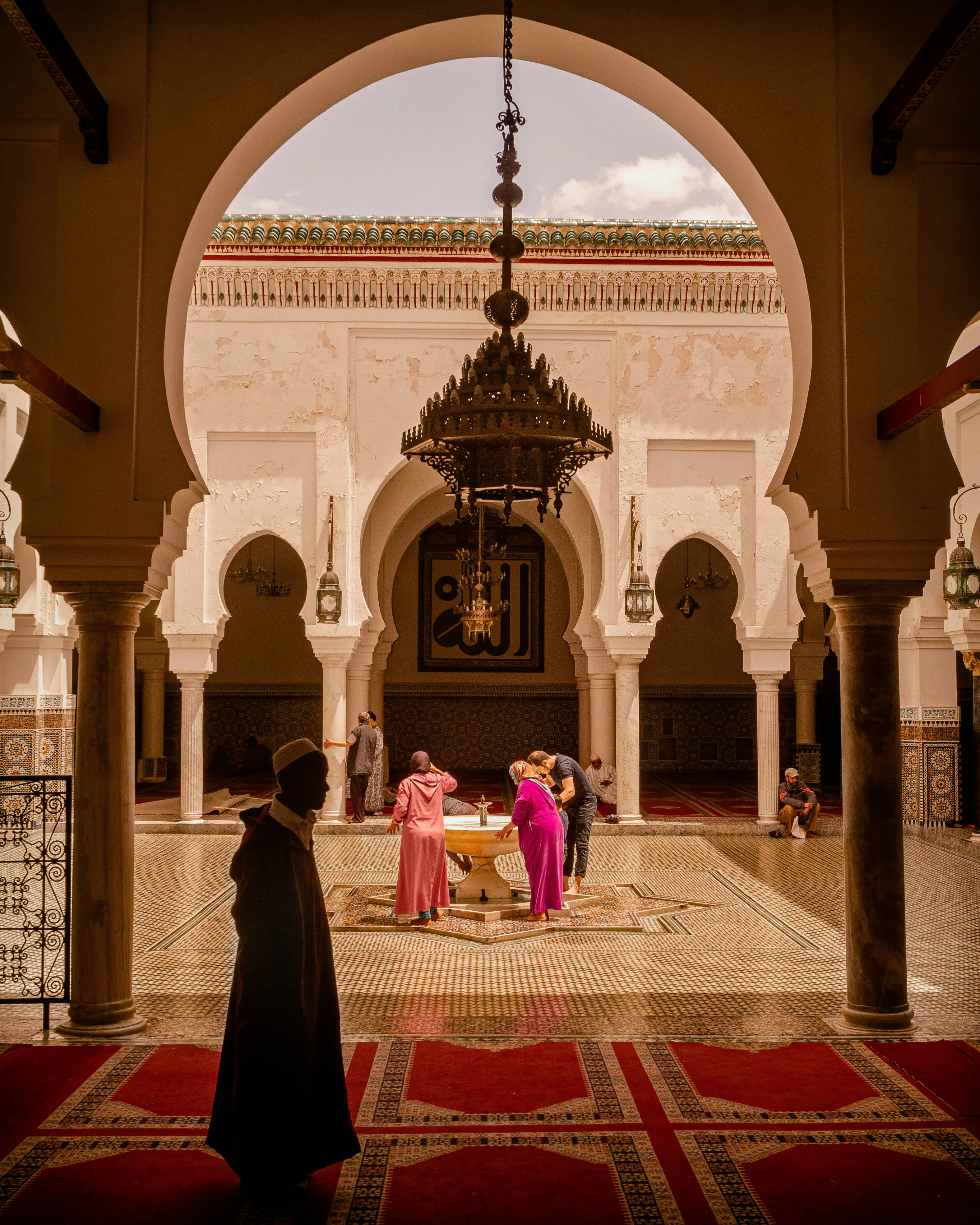A safe and comfortable holiday in Morocco comes with a series of precautions worth considering. Are you wondering “Is it safe to travel to Morocco?”? Here is all you need to know.
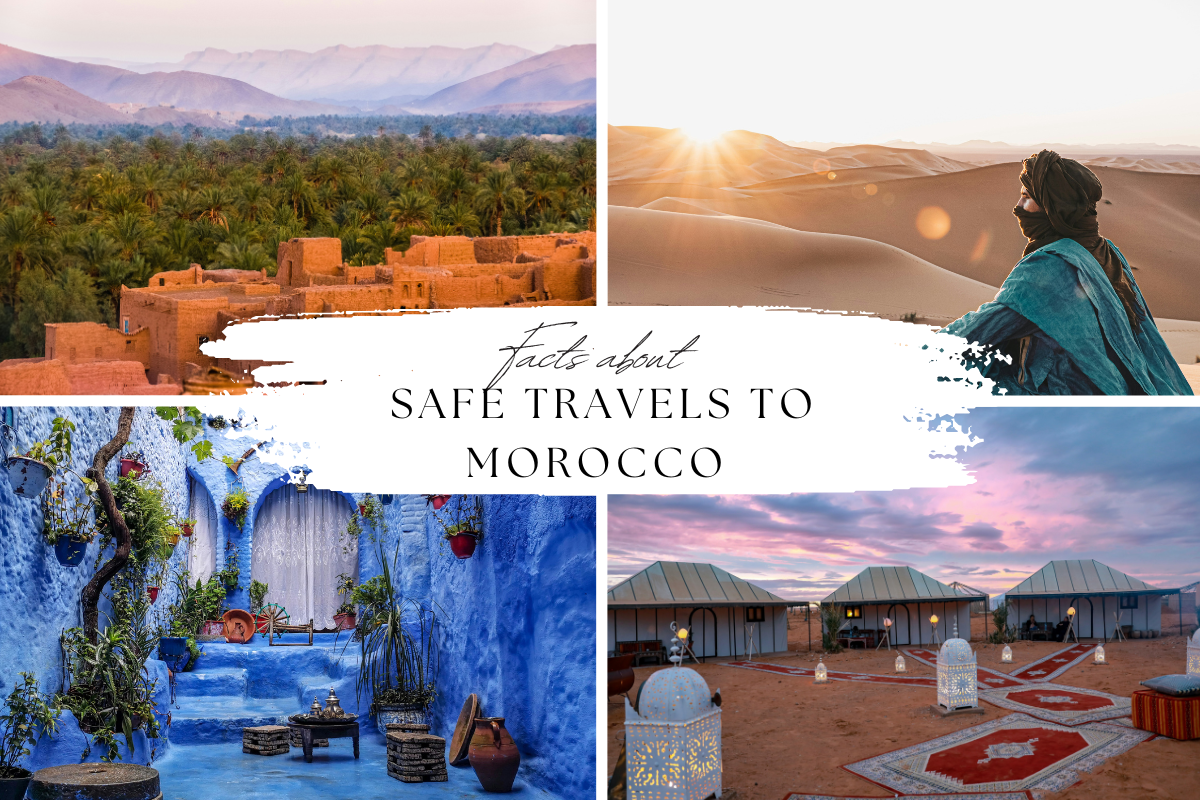
Morocco, located at the crossroads of Africa and Europe, is a captivating country renowned for its rich history, vibrant culture, and breathtaking landscapes. Despite some concerns related to safety in certain regions, Morocco, as a whole, remains a relatively safe destination for tourists.
The country has a well-established tourism industry. FCDO (The Foreign, Commonwealth & Development Office) lists popular tourist destinations like Marrakech, Casablanca, Fez, and the coastal cities as safe places to visit in Morocco. This means that you will most likely have an enjoyable visit without any unexpected events. Still, there are some things you should be aware of for staying safe in Morocco.
We gathered all the official travel advisories you need to plan a safe and comfortable trip to Morocco.
Is It Safe to Travel to Morocco?
Morocco offers a rich cultural experience and diverse landscapes, making it a popular destination for tourists. Wonderful travels await as long as you take basic safety precautions! It’s essential to check the most recent travel advisories and consult with your country’s embassy or consulate for the latest information before planning a trip, as circumstances can change.
Travelers in Morocco are advised to stay informed about the current political and security situation, respect local customs, and avoid public demonstrations.
Generally, Morocco is considered relatively safe for travelers, but it’s important to remain vigilant and aware of your surroundings.
The US State Department’s travel advisory for Morocco is at Level 2, which suggests exercising increased caution. This level might indicate factors such as isolated incidents of crime or unrest in specific regions.
The UK’s Foreign, Commonwealth & Development Office (FCDO) also advised against travel to certain regions near the borders with Algeria and Mauritania, notably including areas in the Western Sahara due to the risk of terrorism.
Egypt has a hot climate, especially during the summer months. Protect yourself from the sun’s intense rays by wearing sunscreen, a wide-brimmed hat, and sunglasses.
Before traveling, it’s wise to review the specific advisories for the areas you plan to visit, and consider factors like the current political climate, health concerns, and any recent incidents that might affect safety.
Here are a few popular and generally safe destinations in Morocco:
Marrakech: It has a well-developed tourism infrastructure and is generally safe for travelers.
Fes: Visitors can explore the narrow streets, traditional markets, and historic landmarks with relative safety.
Essaouira: It’s known for its beautiful beaches, historic fortifications, and vibrant arts scene.
Chefchaouen: Chefchaouen is known for its stunning mountain scenery and relaxed vibe. It’s a popular destination for travelers seeking a more laid-back experience.
Agadir: Located on Morocco’s southern coast, Agadir is known for its beautiful beaches and sunny weather. It’s a popular destination for water sports enthusiasts and sunseekers.
While these destinations are generally safe for travelers, it’s essential to take common-sense precautions such as avoiding walking alone at night.
Morocco can be a safe destination for female tourists and women travelling solo. But like traveling anywhere else, it’s essential to take certain precautions to ensure your safety and comfort.
Female travelers in Morocco may face unwanted attention, petty theft, cultural differences, language barriers, and potential scams.
Dressing modestly, avoiding traveling alone at night, respecting local customs, staying aware of surroundings, and considering guided tours are essential steps for a safe and enjoyable experience
The city has a well-developed tourism infrastructure and attracts millions of visitors each year. However, tourists should be vigilant against pickpocketing and scams, especially in crowded areas like the medina and souks.
It’s advisable to avoid walking alone at night in poorly lit or deserted areas and to use reputable transportation options. Violent crimes against tourists in Marrakech are relatively rare, but petty crimes such as pickpocketing, theft, and scams can occur, particularly in crowded tourist areas like Djemaa El Fna. Travelers should also be wary of scams such as overcharging, fake tour guides, or offers that seem too good to be true.
Morocco is generally safe for Westerners, and the country welcomes millions of tourists from around the world each year. Respecting local customs and cultural norms can contribute to a more positive experience.
Morocco has a predominantly Muslim population with distinct cultural practices and traditions that may differ from those in the Western world. It’s essential to respect Islamic customs and practices. For example, during Ramadan, it’s important to be mindful of fasting hours and avoid eating, drinking, or smoking in public during daylight hours.
Gender roles in Morocco may differ from those in Western societies, with more traditional expectations regarding family structure and social interactions.
In Morocco, certain actions may not be allowed due to cultural norms, legal regulations, or religious beliefs:
– Criticizing or insulting the king, the government, or Islam, as these are sensitive topics in Moroccan society.
– Engaging in homosexual behavior, as homosexuality is illegal under Moroccan law.
– Bringing alcohol into mosques or other religious sites.Alcohol consumption is generally discouraged in Islam.
– Drinking alcohol in public places.
– Consuming food or drinks in public during daylight hours in Ramadan, the holy month of fasting in Islam.

Things to Do to Stay Safe in Morocco
To stay healthy while traveling in Morocco, follow these essential tips:
- Drink bottled or purified water, practice good hand hygiene, be cautious about street food, and ensure you have necessary vaccinations.
- Consulting your healthcare provider before your trip, especially if you have specific health concerns, is advisable to ensure a safe and enjoyable visit to Morocco.
- Protect yourself from the sun and insects with appropriate clothing and repellents.
- If visiting Dades Valley, Todra Gorge, or other high-altitude areas, watch for signs of altitude sickness and acclimatize slowly.
- Secure travel insurance covering medical emergencies, respect COVID-19 guidelines, and stay hydrated in the often hot climate. Familiarize yourself with local healthcare facilities, carry necessary medications, and gradually adapt to the local cuisine.
Is it safe to drink tap water in Morocco?
it is generally not recommended to drink tap water in Morocco. The tap water quality can vary from one region to another, and it may not meet international standards for potable water. To stay safe, it’s advisable to rely on bottled water or purified water during your stay in Morocco.
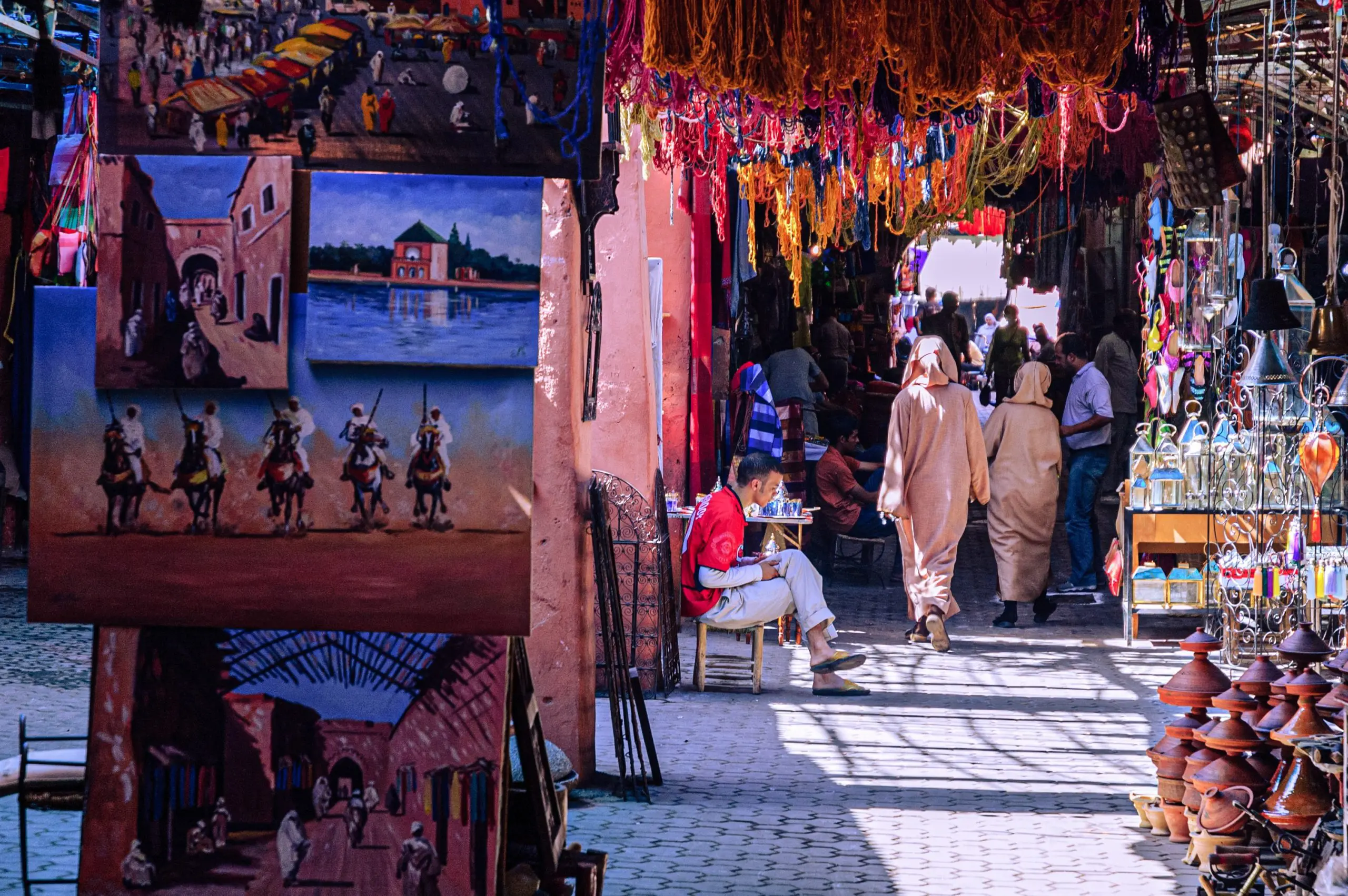
Is it safe to eat street food in Morocco?
Street food in Morocco can be both delicious and a highlight of your culinary experience. Look for street food vendors that are crowded with locals, as this is usually a sign of quality and freshness. If a vendor is popular with locals, it often means the food is both tasty and safe to eat.
Remember that your tolerance for spicy or unfamiliar foods may vary, so start with milder dishes and gradually explore more adventurous options in Morocco.
How to Stay Safe in Public Places in Morocco
Staying safe in public places in Morocco, as in any country, requires a combination of awareness, common sense, and precautionary measures. Here are some tips to help you stay safe while in public areas in Morocco:
- – Dress modestly and respectfully, especially in more conservative areas and when visiting religious sites. Wearing clothing that respects local customs can help you avoid unwanted attention.
- – Avoid public displays of affection as this might be frowned upon or result in legal difficulties such as criminal punishment. Kissing is included in these public displays. Morocco has legal regulations concerning actions deemed as “acts of aggression against Moroccan Muslim society and people”.
- – Pickpocketing can occur in crowded areas, so keep an eye on your belongings. Use anti-theft bags or money belts to secure your valuables.
- – If there are protests or demonstrations taking place, stay away from them to avoid getting caught up in any potential unrest.
- – Avoid participating in or getting close to political demonstrations or protests, as these situations can become unpredictable and potentially dangerous.
- – Familiarize yourself with the local customs and laws, and adhere to them. This includes respecting local traditions, especially during religious festivals or events such as Ramadan.
Is it safe to travel to Morocco as a woman?
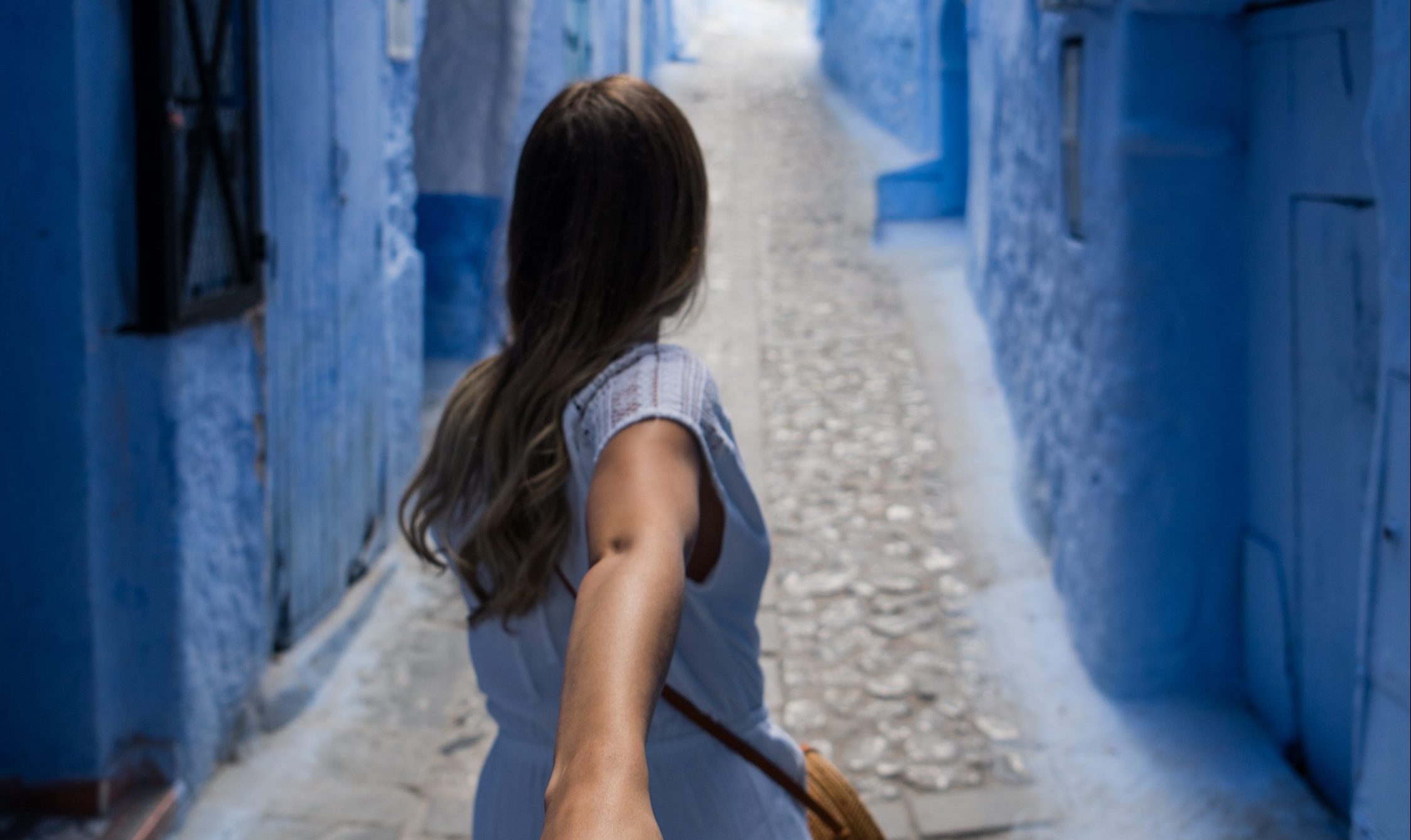
Morocco is generally considered safe for female travelers, with many women visiting the country without encountering significant safety issues. To ensure a safe and enjoyable trip, it’s advisable for female travelers to dress modestly, be cautious at night, use reputable accommodations, and avoid unwanted attention.
Traveling in groups, keeping belongings secure, staying informed about local customs and laws, and trusting instincts are essential safety measures. While Morocco offers a diverse range of experiences, it’s prudent for female travelers to plan ahead, research their destination, and take precautions to enhance their comfort and security.
Fostering cultural awareness and respect for local customs can help female travelers establish positive interactions and experiences during their stay in Morocco.
Is Morocco safe for LGBTQ+ travellers?
Morocco is a Muslim-majority country with conservative cultural norms, and same-sex sexual activity is technically illegal under Moroccan law. LGBTQ+ travelers may face certain challenges and potential discrimination while visiting the country. However, it’s important to note that attitudes towards LGBTQ+ individuals can vary, and some LGBTQ+ tourists have reported having positive experiences in Morocco.
It’s advisable to exercise discretion in public and avoid public displays of affection, regardless of sexual orientation or gender identity. Travel with a group or a companion for added safety, and keep your belongings secure to minimize any potential risks.
What are some ethical rules to follow in Morocco?
Morocco has a rich cultural and religious heritage, and it’s essential for visitors to be respectful of local customs and follow ethical rules to ensure a positive and respectful experience. Here are some ethical guidelines to follow when visiting Morocco:
Dress Code: In Morocco, it is customary to dress modestly, especially in more conservative areas and when visiting religious sites. Women should cover their shoulders, chest, and knees.
Common Decency: Be open to experiencing local customs and traditions, and show genuine interest in learning about Moroccan culture. Engaging with locals in a respectful manner can lead to enriching experiences.
Religious Sensitivity: Islam is the predominant religion in Morocco, and it’s crucial to respect religious practices and customs. When entering mosques, non-Muslims are generally not allowed, but some mosques do permit tourists at specific times. Be sure to remove your shoes and dress modestly if allowed to enter.
Money Matters: Remember that tipping is a way to show appreciation for good service, and it can be a significant source of income for many service industry workers in Morocco. When giving a tip, it’s polite to hand it directly to the person with a friendly “shukran” (thank you) or a smile.
Include these suggestions and tips in your travel toolkit for a safe and enjoyable visit to Morocco. Your Morocco tour will undoubtedly be a fantastic experience!
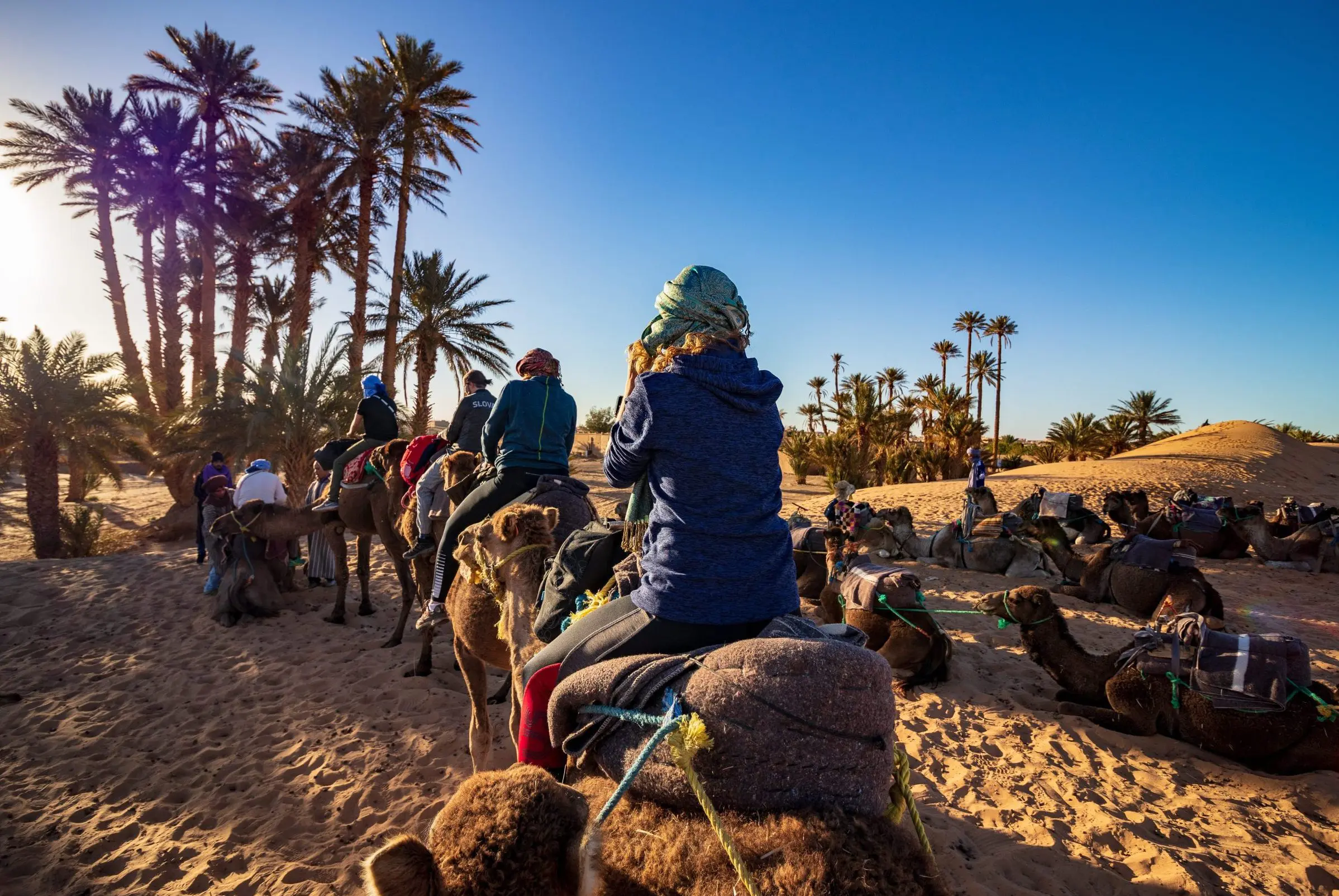 October Sale: 50% Off
October Sale: 50% Off Croatia Sailing 2025: 50% Off
Croatia Sailing 2025: 50% Off ANZAC Day Trips : Save 40%
ANZAC Day Trips : Save 40% 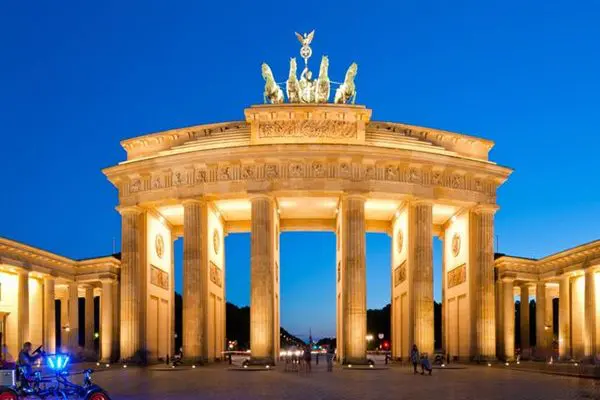 Central & Eastern Europe Tours: 50% Off
Central & Eastern Europe Tours: 50% Off  Why Travel Talk
Why Travel Talk Travel Talk Blog
Travel Talk Blog Responsible Travel
Responsible Travel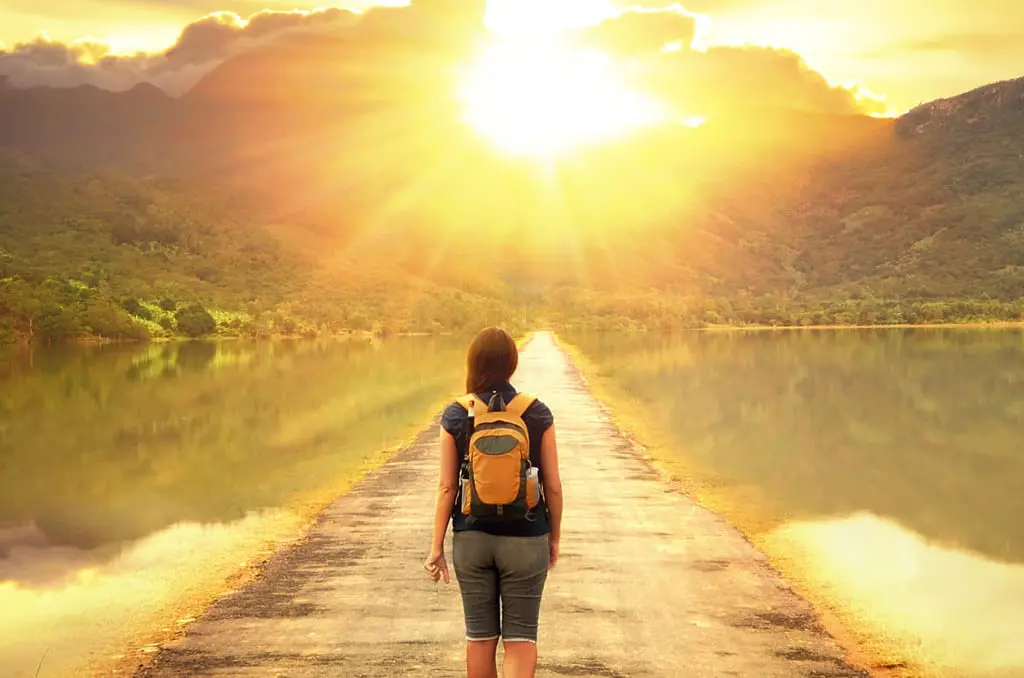 Fair Travels with Travel Talk
Fair Travels with Travel Talk